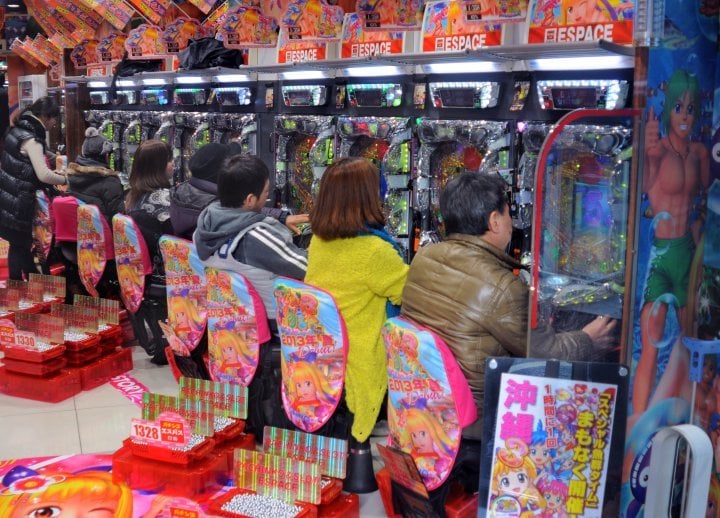Japan Casinos Expected to Embrace Slot Machines, But Pachinko a No-Go
Posted on: May 3, 2017, 05:00h.
Last updated on: May 3, 2017, 04:45h.
At minimum, two Japan casinos are expected to be authorized by the National Diet when the governing body comes to terms on its integrated resorts bill sometime this fall.
And when casino companies make their pitches to the government to acquire one of the highly sought licenses, slots are anticipated to have a strong presence on the gaming floor, a stark contrast to other gambling venues in Asia.

According to a report published by Global Market Advisors (GMA), a casino and hospitality consulting firm based in Las Vegas, slot machines will take center stage on Japan’s gaming floors. While other Asian countries with gambling focus on table games to cater to the highly popular baccarat crowd, in Japan, like in the US, slots will take on a bigger role.
“The single greatest misconception a casino operator can make is to assume that Japanese gamers will play the same games as those players that frequent Macau,” the report, titled “White Paper: Japan Integrated Resorts,” explained. “The Chinese have a table game centric gaming culture and have long embraced baccarat and sic bro. The Japanese … have a long-established history as a machine-centric gaming culture.”
Indeed, the Japanese love their pachinko, a recreational arcade-like game that resembles a vertical pinball machine. While most forms of gambling are outlawed in the Pacific Ocean island nation, hundreds of pachinko parlors spread across Japan allow the machines to take small bets.
Slots In, Pachinko Out
The National Diet approved its integrated resorts bill in December. However, the statute called for the legislature to subsequently write a second, more comprehensive law that lays the groundwork for everything from the number of resorts, licensing requirements, taxes and fees, social and problem gaming protocols, and various other aspects.
That bill is presently being drafted in the large Diet, which consists of 475 House of Representatives, and 242 House of Councilors.
While few details have emerged, one rumor is circulating that the country won’t liberalize betting on pachinko, or allow the popular game to be installed on the casino resort floors. That’s likely in an effort to try and combat any social harm on its own citizens that might arise from the gaming expansion.
Pay to Play
Numerous Asian countries have casinos, but many block residents from entering the venues. The Philippines and Vietnam, as example, both bar their own from entering land-based casinos.
Japan is forecasted to take a different approach by charging citizens admission fees, while foreigners will be granted access free of charge. Reports are swirling as to what that might cost a Japanese local, with guesstimates ranging from a few dollars to as high as $90.
The entry fee concept comes from Singapore’s gaming industry, which the Diet is using as a blueprint. The country’s two casinos, Marina Bay Sands and Resorts World Sentosa, are required by law to charge nationals $72 for 24 hours of access, or roughly $720 for a yearly pass.
Social aspects of authorizing casino resorts are of utmost concern to Japan’s lawmakers, and restricting access is seen as one way to help curb problem gambling before it arises.
No comments yet